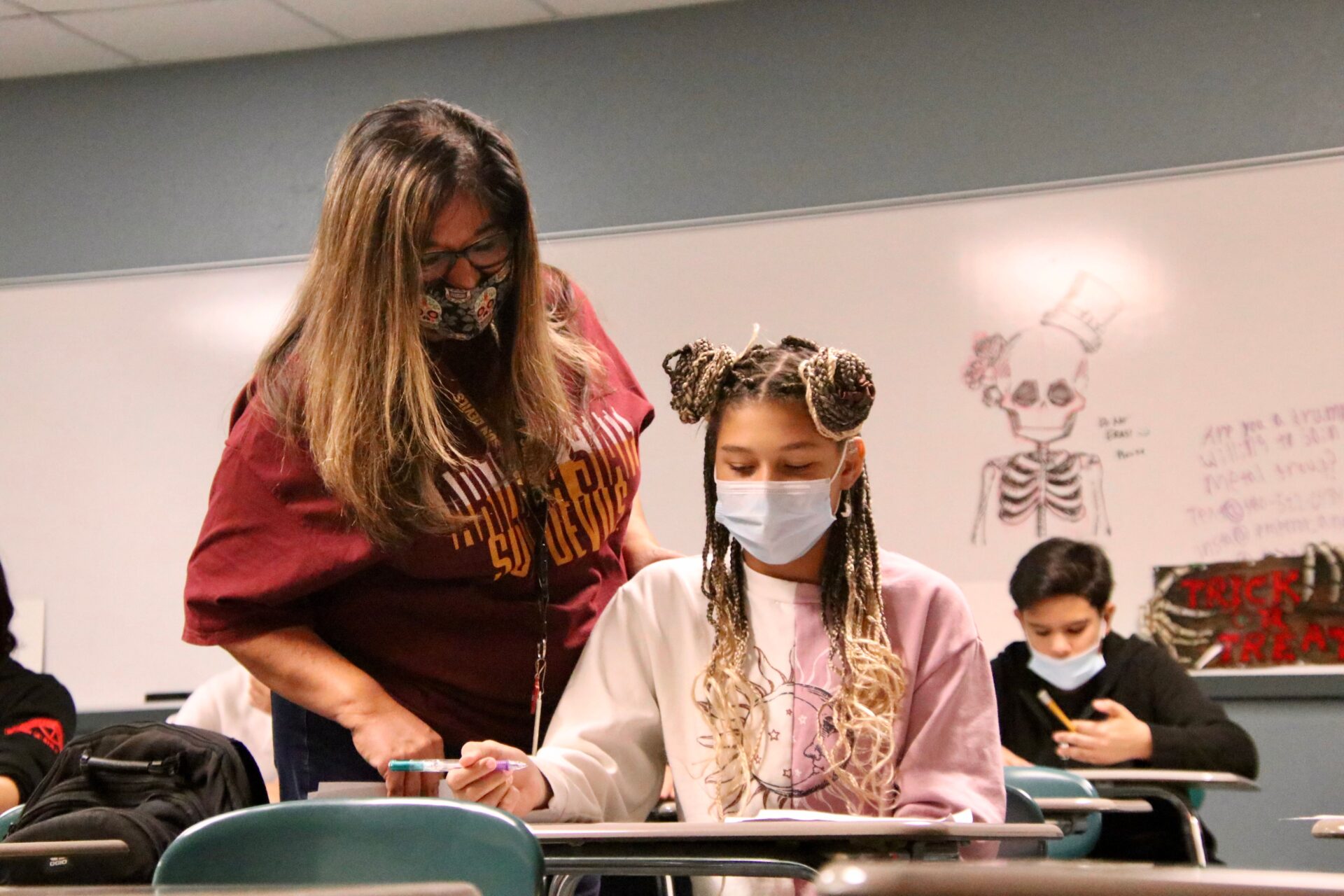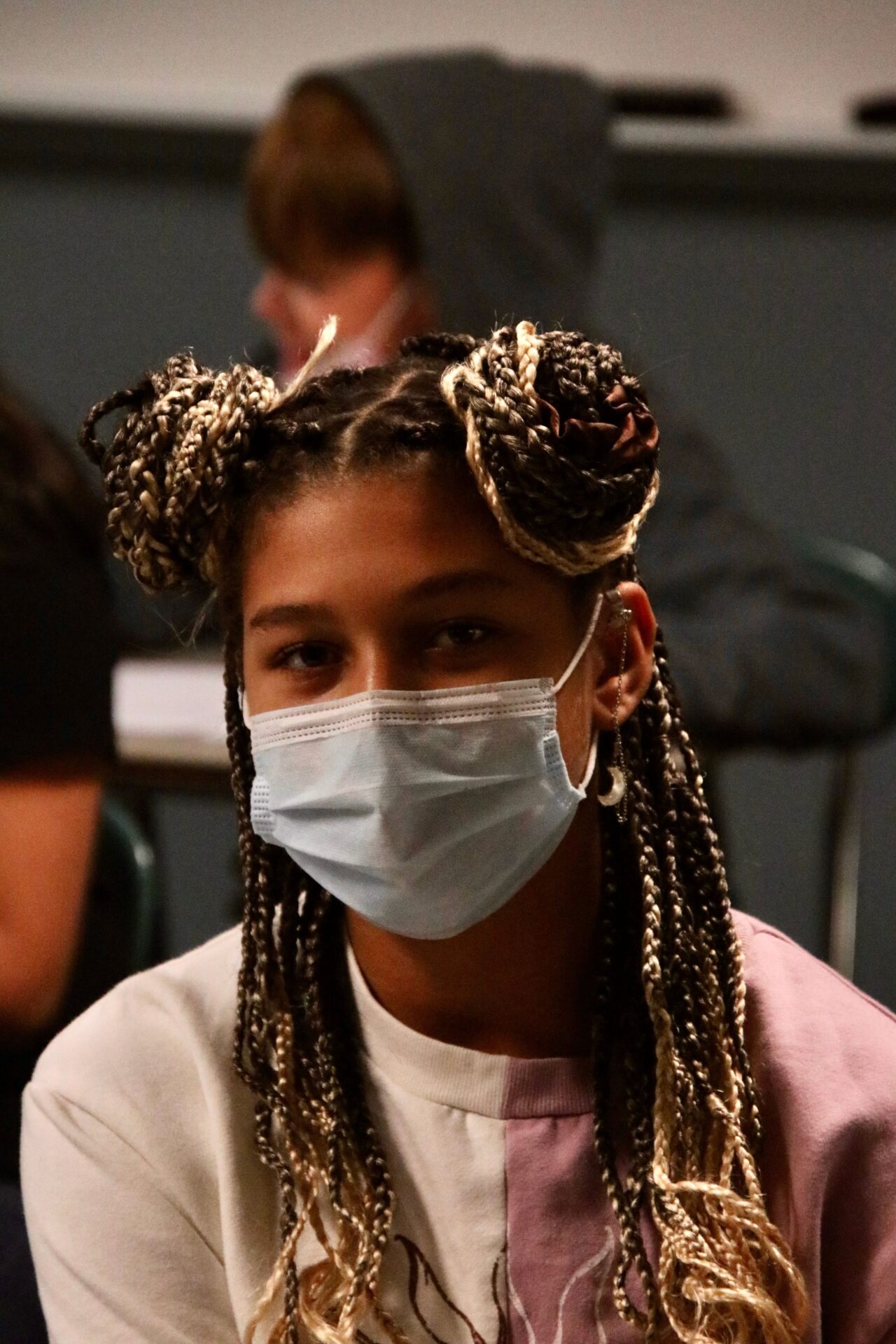
Among the things McKenna Baker of Tempe learned in kindergarten — along with share everything, take a nap every afternoon and don’t hit people — is Spanish.
In her ensuing years at Kyrene de los Ninos and Kyrene del Norte elementary schools and at Kyrene Middle School, McKenna took Spanish/math, Spanish/social studies and Spanish/science.
“It’s all I’ve ever known,” the 14-year-old said.
Now, McKenna is among 10 freshmen in the new Dual Language Program at Marcos de Niza High. Launched this fall, it’s the only high-school program of its kind in the Tempe Union High School District and, according to district officials, the only one in Arizona.
Marcos offers two courses — Spanish and science taught in Spanish — for freshmen in the program. Next year, it plans to add Spanish 4 and Spanish/world history for sophomores. The school will further expand the optional program for its juniors (2023) and seniors (2024).
Kelly Muchmore, Spanish teacher and Dual Language liaison at Marcos de Niza, said it made sense for the school to create the program because students from its feeder schools come in with years of Spanish in their heads.
“It’s a natural progression to the high school,” Muchmore said, “and an opportunity for students to become multilingual. The U.S. lags behind our counterparts in terms of language teaching and languages spoken by the adult population, and a lot of that is because, historically, we haven’t started teaching them until high school or college. But kids learn faster and their retention is better, so the younger we start, the more likely they will be successful in that and other subjects, as well.”
The Marcos program is for students who don’t have Spanish-language backgrounds, rather than for heritage speakers, although the latter also can enroll, she said. If students don’t have support at home to learn, read, hear and use Spanish, they can get it at school.
“Learning a second or third language is an overall benefit to students,” Muchmore said. “It can help them be more successful in job skills, but it also benefits their cultural awareness and sensitivity, and promotes diversity and inclusion.”
Additionally, students can earn college credits through Rio Salado Community College, and the Seal of Biliteracy from the Arizona Department of Education for their diplomas and transcripts.

The Marcos faculty has readily accepted the new model, she said, to the point that a choir teacher wants to plan a concert with songs in Spanish.
“Anytime we have a program that has a positive impact on kids in the community and helps prepare them for the future, draws in students who are motivated and academically focused, that program is going to be supported,” Muchmore said.
One-third of the students’ school day is spent speaking and learning in Spanish. Teacher Laurie Varela said it’s interesting to see how well the students are doing, given their dual-language programming in elementary and middle school.
“Their vocabulary, their language is spot on,” Varela said, “but how can we improve their writing and use of more descriptive words?”
Classroom time also invites students to think more critically about their plans for the future, their opportunities for world travel and expansion of horizons, she said.
McKenna enjoyed an assignment from Varela to research and present a two-minute talk in Spanish about a person in history who shares the teen’s birthday. She chose Mayra Garcia, a beach volleyball player, who competed in the 2004 and 2008 Summer Olympics.
McKenna gets why Spanish is important.
“It’s really more about jobs and getting a higher pay because, for any job, it’s helpful to know how to speak Spanish,” said the aspiring Disney animator or pro volleyball player.
She saw the benefit of knowing a second language two years ago while on a road trip in Mexico. When the family car broke down, the then-seventh-grader translated and negotiated the diagnostics and repairs between her parents and the mechanic.
Her dad buys Spanish newspapers for her read and translate, but otherwise she only speaks it occasionally at home.
“Only out of spite,” McKenna said. “My parents don’t know Spanish, so when I’m trying to annoy them, I’ll speak in Spanish all day.”

